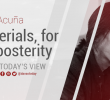The Tax Reform for Acceleration and Inclusion (TRAIN) Law was envisioned to lower income taxes. However, to compensate for the reduction in tax revenue, it imposes higher excise taxes, of which an example is consumption taxes. In a nutshell, this law is a move from lower income taxation to higher consumption taxation. This makes the TRAIN Law anti-poor because it: (1) violates the fairness principle; (2) will worsen income distribution; and (3) will worsen the impact of inflation on the poor.
Violation of the fairness principle
One principle of taxation is the fairness principle. This means that those with more income should contribute a larger share of their income in taxes. A practical reason behind this principle is the fact that the poor spend 90% of their income on basic commodities compared to only 30% for the rich.
The fairness principle is addressed through a progressive form of taxation. This is reflected in the way income taxes are computed wherein tax rates increase progressively for each successive higher step in income brackets. This means that the higher the income, the higher the tax rates get. For example, under the previous tax system, the marginal tax rate for someone earning P30,000 is just 10 percent while it is 25 percent for someone earning P150,000.
On the other hand, consumption tax like excise taxes on fuel products is a uniform tax system. The tax rate is the same regardless of the income. For example, under the TRAIN Law, the excise tax on diesel is P2.50 per liter for this year. If the price of diesel is P40.00 per liter, the excise tax would be equivalent to 6.25% for this amount. This tax rate stays the same – regardless of who purchases the diesel.
To see how lower income individuals are adversely affected by excise tax, consider this example: Suppose two individuals have a monthly consumption of 200 liters of diesel. With an excise tax of P2.50 per liter, both of them will pay P500 per month in excise taxes. One of them is a jeepney driver earning P10,000 per month, while the other one is a company executive earning P200,000 per month. For the jeepney driver, the excise tax is equivalent to 5% of his income while it is just a minuscule 0.25% for the company executive. This makes the excise tax regressive instead of being progressive. In effect, the jeepney driver whose income is 20 times lower than the company executive is being unfairly taxed 20 times higher.
As if the 2.50-peso excise tax were not enough, this injustice will become more glaring in the following couple of years. Excise tax on diesel will rise to P4.50 per liter in 2019 and P6.00 per liter in 2020. On an annual basis, a jeepney driver will be paying an excise tax of P10,800 (200 x 4.50 x 12) next year and P14,400 (200 x 6 x 12) in 2020.
The same story is repeated for the rest of the informal sector, such as farmers who use fuel for their farm equipment and fisherfolk who use motorized fishing boats. The effect will be magnified when we consider that PUV drivers, farmers, and fisherfolk are also usually breadwinners with spouses and children who depend on them. Not only that, but the rest of us who rely on public transportation and farm produce will likewise be adversely affected. Even textbook economics will tell us that most of the tax burden for taxes on petroleum products will fall more on the consumer. The TRAIN Law then clearly violates the fairness principle of taxation to the detriment of the poorest consumers.
Worsens income distribution
One purpose of taxation is to address the imbalance of income distribution in the society. This is achieved by a redistribution of income from the rich to the poor. One way that TRAIN claims to do this is by increasing the take-home pay of small earners.
However, this reduction in income tax and higher take-home pay under TRAIN will only be enjoyed by those salaried individuals in the formal sector. It will not benefit the people in the informal sector since this sector is beyond the income tax mechanism of the government. It is in the informal sector where around 90 percent of the poor are located, such as the farmers, fishermen, jeepney and tricycle drivers, ambulant vendors, among others. But with estimates saying that the informal sector constitutes more than 40-60 percent of the total economic activity of the country, we cannot deny the important role it plays in everyday production, exchange, and consumption. This has to be taken into consideration to see how TRAIN will impact this significant domain of economic activity.
The higher take-home pay due to the reduction in income tax will also not benefit the minimum wage earners even in the formal sector since they are exempted from paying income taxes in the first place. In the same manner, non-income earners like dependents of OFW remittances and pensioners will gain nothing from a reduction in income tax. They have no take-home pay and thus no increase in income.
Nevertheless, the informal sector, minimum wage earners, and non-income earners will be hurt by the increase in prices brought about by higher excise taxes, as I have explained above. Thus, while those who have regular employment in the formal sector may enjoy higher take-home pay and lower taxes, the bulk of the poor will not enjoy the higher take-home pay but will still have to pay higher taxes. This is not just a violation of the fairness principle but also contrary to the redistributive purpose of taxation.
A million more poor Filipinos
With excise taxes come the fear of higher prices. The Bangko Sentral ng Pilipinas tries to downplay the effect of TRAIN on inflation by saying that it will increase the inflation rate by only 1 percent. However, they admit that this is just the first round of increase, meaning to say, just the direct effect of excise taxes on commodity prices. The secondary effects, which would include higher transport fares, cooking expenses, electricity bills and production cost, will amount to another 1 percent.
This is just the cost side. Inflation may also be caused by demand side movements. As the richer households receive higher take-home pay, they have more money to spend with. This may increase aggregate demand.
A reduction in the supply side due to higher fuel prices and production costs coupled with higher demand side movements due to higher take-home pay will create more price inflation. This will add another 1 percent at the very least. That is a total of 3 percent inflation already.
Roughly speaking, inflation rate is computed based on the increase in the cost of the typical consumption pattern of a Filipino household. However, a 2008 study by the Asian Development Bank entitled “Has Inflation Hurt the Poor? Regional Analysis in the Philippines” found that the consumption pattern used in the computation of the official inflation rate in the Philippines is different from the typical consumption pattern of poor Filipinos. Moreover, the study revealed that the inflation rate as felt by the poor is higher by around 2 percent than the official inflation rate. This implies that the impact of TRAIN on the poor’s inflation rate is around 5 percent. Based on the study, a 5 percent additional inflation rate will put one million more Filipinos in poverty.
While the Bangko Sentral, through its control of money supply and interest rate, can control inflation to be within its target of less than 4 percent, this is done by increasing the interest rate. Many studies estimate that to mitigate the impact of the TRAIN Law on inflation, the interest rate has to go up by 0.5 percent. With the country’s national debt at around P6.5 trillion, a 0.5 percent increase in the interest rate means that interest payment will increase by P32.5 billion. This amount is already sufficient to double the entry-level salary of public school teachers.
What are the social safety nets?
There have been some suggestions as to how to mitigate the impact of the TRAIN Law on the poor. One of these is the proposed government subsidy amounting to P200-300, which is really just a pittance compared to expenses that will be incurred with higher consumption taxes. Besides, collecting tax and then returning it back in the form of government subsidies is administratively costly (and potentially a source of corruption) compared to not collecting the tax in the first place. If the Department of Social Welfare and Development (DSWD) is already overstretched in managing the conditional cash transfer program (or 4Ps) with only around 4.4 million beneficiaries, then how much more of a logistical nightmare will it be to administer the cash transfers to around 15 million families who will stand to lose with TRAIN?
Legislated wage increases, if they are given at all, will also be of little help for those in the informal sector because they also fall outside such government instrumentalities.
There are also those who optimistically look at the government’s current development programs, to be financed by tax revenues, hoping that it will eventually improve economic conditions. But flagship projects such as the “Build, Build, Build” are mostly financed by foreign loans (which may be impacted by higher interest rates) and not tax revenues. Tax reform schemes (like TRAIN) could have instead been implemented later, after the economy had started reaping the benefits of “Build, Build, Build.”
Pro-rich
The TRAIN Law was not calibrated to address equity issues, such as taxing the rich proportionate to their income.
For example, we will see that the original proposed excise taxes on the automobile, tobacco, and mining industries were drastically reduced in the final version of the TRAIN Law. Luxury cars became cheaper. Excise tax on tobacco was reduced from P60 to P32.50, and excise tax on mineral products was reduced from 10 to 4 percent. There should be no surprise if we discover that this was the result of the strong lobbying of these industries among members of Congress.
The government is already losing P300 billion yearly due to tax perks enjoyed by private corporations. This is larger than the Php 74 billion expected to be generated from fuel excise taxes. If only the government will rationalize the fiscal incentives of top corporations, then we will be able to spare the poor from higher fuel prices.
If the TRAIN Law were really for tax reform, then it should also include the tax collection system. With Duterte’s iron fist, tax evaders (including some Bureau of Internal Revenue personnel in cahoots with them) could be prosecuted more easily. He could increase tax collection if he would strictly enforce the existing system. But as it stands, collecting consumption taxes from the poor is easier than a sincere effort to go after tax evaders.
Bad policy in the worse setting
In a society where income and wealth are fairly distributed, consumption taxation is more efficient and effective than income taxation. On the other hand, in a society where the distribution of income and wealth is highly unequal, income taxation may be problematic (or, in need of reform), but consumption taxation is more harmful.
With TRAIN, the shift from income to consumption taxation will adversely affect the bottom 60% of Filipinos, such as those in the informal sector, the minimum wage earners and the non-income earners like OFW dependents and pensioners. This violates the fairness principle of a tax system.
With the rich paying less taxes and the poor paying more taxes, this is also contrary to the redistribution principle of a tax system and will worsen income inequality.
The inflationary impact of TRAIN brought about by excise taxes will add another one million Filipinos living in poverty. Mitigating higher inflation by increasing the interest rate will result in higher debt servicing by an amount adequate enough to double the entry-level salary of public school teachers.
The TRAIN Law is a bad policy enacted in the worse possible setting. In the absence of genuine social safety nets, this is an anti-poor program that will worsen income inequality and is devoid of social justice.
In effect, the rich will enjoy the TRAIN ride while the poor will be run over. If that is not exploitation, then I don’t know what is. (davaotoday.com)
About the author: Harvey M. Niere is currently teaching as an Associate Professor in the Economics Department of the Mindanao State University, Marawi City.









